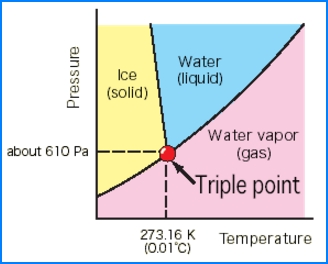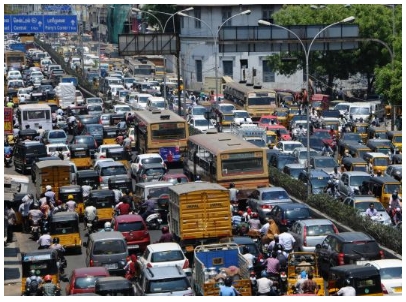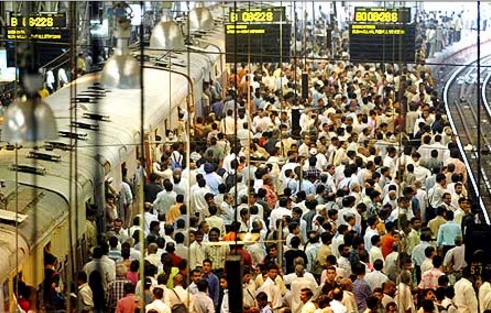 Rain
Rain
I keep waiting for the real monsoons to show up in Mumbai. Do they have any thunder and lightening and huge downpours around here or does this anemic occasional rain showers pass for the monsoons? Thank goodness that I went to Lonavla last weekend with a bunch of guys from work. As we entered the Western Ghats, we passed through the mother of all rain storms. Waterfalls by the hundreds cascaded down the rocky cliffs at the edges of the Mumbai-Pune highway. When we reached Lonavla, the downpour had created fast-flowing rivers of the narrow roads of the busy tourist town. Being situated in a hilly area, shortly after the storm ended, the rivers vanished and the narrow streets reappeared.
Mumbai, however, is not showing any real monsoon activities. Indeed, a couple of days of dry weather was the reason that it took me about 2 hours to get from Kandivali (the northern Mumbai suburb where I live) to my office in Lower Parel six days a week. Most of Kandivali is in the “second world” while most of Lower Parel is in the “third world”. I had noted in this journal the distinction between upper and lower Mumbai where I wrote:
Mumbai is a fascinating place. It is place where the rich and the poor live cheek to jowl, where the so-called first world, the second world and the third world co-exist in the same geographical space. In a manner, it is a microcosm which reflects the global economic condition.
The co-existence of the first world and the third world in Mumbai is made possible by a stratification in the vertical dimension. The boundary is approximately around 20 feet off the ground level. About 20 feet above ground level, you have the first world. Below 20 feet above ground level, the second and the third world live, with the second world occupying the higher floors below the 20 feet mark.
 Triple Point
Triple Point
Mumbai is what I would call the Triple Point of the World and indicate it as zero degrees human. If you had been paying attention when you were being taught elementary physics in school, you would immediately get my point. For the scatter-brained, here is what I mean. The triple point of water is zero degree Celsius and is so called because H2O exists in all its incarnations — solid, liquid, and vapor — at zero degrees Celsius. In Mumbai, you have the fabulously rich, a middle-class, and a huge abjectly poor population all co-existing at Zero Degrees Humanity, as I will explain in a little bit.
But I digress. I was going on about how a dry spell was what led to my excellent two-hour journey from my apartment to my work place, a distance of about 16 miles. It was Friday morning when I woke up a bit too late and decided to start off at 9 am. The first bit of my journey is always an autorickshaw to the Kandivali local station about a mile and a half away. It took me an hour because of congestion. The so-called Western Express highway was crawling along. The collective exhausts of hundreds of vehicles packed bumper to bumper could have caused the upper respiratory tract infection I am suffering from now.
 Congestion
Congestion
So we finally get off the “highway” and loop around to go underneath it. At that point, it took about a half hour to move about 100 yards. Here is why. The roads, never great exemplars of their set, had deteriorated due to the rains and sections of it are best described as torture-tracks for vehicles. Craters the size of wash-basins dot the stretch under the highway. Because it had been dry for a couple of days, they who are in charge of “maintaining” the roads decided that it would be a good time to fix the craters. What better time, they must have thought, than 9 AM on a Friday morning to do so. So they parked a truck full of baseball sized rocks right in the middle of a 20-foot wide road and were busy dumping those rocks into those craters by hand.
We are a poor country. Why? Because we don’t have stuff. Why? Because we don’t produce too much stuff and we have a large population. Why doesn’t the large population produce stuff? Because it takes forever to get things done around here. Why? Because we don’t think. We don’t think that perhaps 2 AM in the morning would be a better time to dump rocks on to a road. Silly idea to begin with, but it gets worse when it also adds thousands of hours to the already unbearable commutes. Little things like that add up and we end up being a nation with the lowest productivity in the world. (It is a silly idea to dump rocks in to those craters because after the dumping is done, traffic will rearrange the rocks so that the rocks move to the edges of the road and the craters are back to where they were and now the rocks just add to the friction on that road. But hey, who cares. The Mumbai road people have spent a few thousand rupees fixing the road and that is that.)
 Ideas Gap
Ideas Gap
As I had pointed out previously, there is the objects gap: not having too much stuff to produce more stuff with; and there is the ideas gap: not having enough brains to make efficient use of the limited amount of stuff one has to work with. Not having expensive road-repairing machines is the objects gap. Not having the brains to fix the roads (for whatever it is worth) at a time which would be least disruptive to traffic is the ideas gap. If you have an ideas gap, it wastes resources. There is no point in trying to make the roads “electronic intelligent roads” when the people so are astoundingly dumb.
All things must pass, as the wise remark. So we too passed through that bottleneck and I ended up at platform number 2 of the renowned Kandivali station. It was 10 AM. Trains arriving on this platform originate from Borivali, the neighboring station. For most of the day (about 16 hours), the congestion is so high that the trains are bursting at the seams when they leave Borivali. Around 10 AM, getting on a train in Kandivali is an adventure, to put it mildly. I have a First Class pass. About a sixth of each train is “first class” meaning the seats have vinyl coverings instead of the uncovered wooden seats in second class. Also, first class costs about fives times as much as second class. The crowding in second class is of course several times worse than in first class.
 People who write great works such as Charles Dickens or Leo Tolstoy or Salman Rushdie (never read the guy but I had to put in an Indian) could perhaps describe in words what one experiences on the Mumbai locals. I certainly cannot. I can only gasp in disbelief, and that too in retrospection because you cannot gasp when you are jammed into a compartment which is meant to accommodate 50 people has about 250 in it. Sardine cans have been put to shame when they are compared to Mumbai locals. Those trains are designed to carry about a thousand people. They routinely transport about five thousand people instead. And most of these five thousand make it to their respective destinations.
People who write great works such as Charles Dickens or Leo Tolstoy or Salman Rushdie (never read the guy but I had to put in an Indian) could perhaps describe in words what one experiences on the Mumbai locals. I certainly cannot. I can only gasp in disbelief, and that too in retrospection because you cannot gasp when you are jammed into a compartment which is meant to accommodate 50 people has about 250 in it. Sardine cans have been put to shame when they are compared to Mumbai locals. Those trains are designed to carry about a thousand people. They routinely transport about five thousand people instead. And most of these five thousand make it to their respective destinations.
Disposable People
I say most of these make it home because a very small insignificant percentage don’t survive the journey. On average about 10 people die during the journey on a Mumbai local every day. That is, about 300 people die very month while traveling on Mumbai locals. Every year, over 3,500 people leave home, catch a Mumbai local, and end up dead in an hour. It is like with clockwork regularity, every month a 747 crashes and kills all on board. And everyone takes that as normal and carries on with business as usual. I chose my words carefully when I wrote insignificant because a few thousand people in a place which has 18,000,000 to spare is not a big deal. Due to their astonishingly large numbers, the people are disposable. There’s more where they came from.
Their deaths are unremarkable events. Newspapers which routinely report the latest shenanigans of Hollywood sleaze-bags on their front page don’t even mention the deaths of thousands in their struggle. Once in a while a particularly gruesome death is reported in the third page of some rag such as Midday.
For instance, a few weeks ago, that paper reported that a 16-year old fell off of a local and his limbs were severed. He lay there by the side of the tracks for half an hour in agony. Police finally picked him up, put the limbs in a plastic bag and took him to a hospital where he was declared dead on arrival. His mother later said that he was in so much of a hurry to get to his school that he forgot to take his lunch with him that morning.
In the half-hour that he lay bleeding on the tracks, about 10 trains must have passed the scene. Thousands must have seen the boy lying there crying for help. They did not do anything. They could not do anything. Surely the trains could not stop. Because if they did, local train transportation would come to a halt. If you delay a train by an hour every time someone dies on the tracks, then about 11 trains would have to be stopped for an hour every day. That will cause all following trains to back up and that is that. There is no slack in the system and that is what happens when congestion is the norm. Any minor disruption and the tipping point is reached and the system collapses.
Loss of Humanity
India is a crowded country and in the resulting congestion, everyday humanity is lost. Recently reported, a man gets on a train and is randomly picked on by a bunch of people and severely beaten for no rhyme or reason. People lose their humanity when the pressures reach a breaking point. India has arrived at the triple point of of the world which is zero degrees humanity.
 We cannot afford the sort of luxury that I learnt about last July in Sydney Australia. My brother’s friend, JV, is a local train driver in Sydney. I stayed with him and his family for a few days. He was on “disability” and was seeing a psychiatrist. A few months ago, someone died on the tracks when he was driving. As a result of the trauma he experienced, they gave him a couple of months’ leave and was being given counseling and medication to help him sleep at night. When one person dies in a train accident, it is a tragedy; when 4,000 die every year, it is a statistic (as the man said).
We cannot afford the sort of luxury that I learnt about last July in Sydney Australia. My brother’s friend, JV, is a local train driver in Sydney. I stayed with him and his family for a few days. He was on “disability” and was seeing a psychiatrist. A few months ago, someone died on the tracks when he was driving. As a result of the trauma he experienced, they gave him a couple of months’ leave and was being given counseling and medication to help him sleep at night. When one person dies in a train accident, it is a tragedy; when 4,000 die every year, it is a statistic (as the man said).
The mark of a truly civilized human being is the ability to read a column of numbers and then weep.
At zero degrees humanity, we see children carrying babies and begging and we turn away. We are so inured to seeing the thousands of abjectly poor people we come across every day that we don’t even bother to sit and consider for a moment some way out of this horror. We don’t even want to investigate the causes of this horror, leave alone doing something about it. We are a sick and a dying civilization. A hundred million malnourished children is a statistic that does not keep us awake at nights. We are not civilized by the standards that Bertrand Russell set when he wrote that the mark of a truly civilized human being is the ability to read a column of numbers and then weep.
Russell encapsulated a lot of meaning in that one statement. If you were to be physically injured, you hurt. Direct injury every type of animal reacts to, including humans. But humans with even rudimentary degrees of empathy feel psychologically distressed when they perceive someone else in front of them in pain. Then there is the next level: where you don’t see the suffering of another sentient being but are told about it by someone else. You hear that your friend’s brother’s father-in-law is dying from cancer and you feel empathy for your friend’s brother’s father-in-law. Our ability to read gives us a very wide window to the world, and often what we learn about the world through that window causes us sorrow. I am sure that you felt some pain when you imagined what it must have been like for that 16-year old who died on the train tracks. It was words, symbols that we have learnt to derive meaning out of, and your empathy that caused you to feel that pain. Abstractions can be painful for one sufficiently trained in symbol manipulation and who have basic humanity within. Numbers are even more abstract than words. It is a far remove from actually being physically hurt to being hurt just by reading a column of numbers.
We should be weeping when we learn that so many millions lead lives of grinding poverty. We don’t because that is the first step to a very long and hard road. If we did, we would be forced to give up our cherished notions of how it will all work out. We will have to admit that, for instance, IT (information technology) may not have the answer to our persistent poverty and the root cause is somewhere else. We may have to let go of our ignorance which says that we can grow ourselves out of this trap — if we only get the right amount of subsidy to the poor, we will have solved the poverty problem. Or if we had sufficient number of job reservations, we would all be fine. Or if we were sufficiently socialistic or communistic or whatever, we would have solved the problems.
Ladies and gentlemen of the jury, we have arrived at Zero Degrees Humanity. How did we get here? By being ignorant of, or even deliberately ignoring, one simple little truth taught in Econ101: the law of supply and demand.
Goodbye, good night, and may your god go with you.

Absolutely amazing – the insights you offer about a city that you have not lived in for several years.
It is just like you say in your essay : We are fast becoming a Zero Degree Humanity society ! And there seems to be no way to stop the avalanche …
LikeLike
Naveen,
Thank god for small mercies for I had never lived in Mumbai till I came here to work with Rajesh.
Cheers.
LikeLike
I am posting an except of your post on my blog
http://armiesofliberation.blogspot.com
I find your blog exceptionally interesting.
LikeLike
Mr. Dey,
Another amazing blog entry. But after spending 20 years in California, you should have walked that 1.5 miles – good for your health and you would have reached your destination faster.
Mr. Bachwani, I assume you live in Mumbai. Sometimes when we live in a city for so many years, we get used to the negative points so much, that we decide to just ignore them – even when those are so ‘in our face’. I know thats how it was when I used to live in Delhi.
According to me, counsuling for one death on the tracks is ridiculous. Thats how you give birth to a generation where public opinion can be swayed on basis of fear. But being insensitive to 4400 deaths is the other extreme and inhuman ofcourse.
I will be posting a link on my blog to your writing.
-Saurabh
LikeLike
I got this link from my friend (http://hsigo.blogspot.com) who said he literally cried on reading it. Myself and him chat a lot about the situation of India. But I won’t complain about the Indians since I too belong to the pool of Indians who think about the miseries but don’t act upon it. I don’t speak a word of a misery unless I can do something to cure it. Lets not complain but try to find a cure to all the miseries that India faces. Jai Hind!
Sudhakar
http://sudhakar81.blogspot.com
LikeLike
so true. above and below 20 feet above ground level – that’s where the divide is in this city.
mumbai frightens me sometimes with its capacity to absorb injustice.
LikeLike
Hi – I’ve linked to this post on my Bombay’s Diaries series. Hope you don’t mind and thanks a lot.
LikeLike
Dear Atanu,
What can I say? I’m bedazzled. I’m touched.
These days, when I’m feeling more dead than alive, your words brought back some of my ideal, some of my life. You have imbibed in your words, the heart of the Buddha, the essence of Buddhism. Here are similar words by Swami Vivekananda:
“If you wish to be a true reformer, three things are necessary. The first is to feel. Do you really feel for your brothers? Do you really feel that there is so much misery in the world, so much ignorance and superstition? Do you really feel that men are your brothers? Does this idea come into your whole being? Does it run with your
blood? Does it tingle in your veins? Does it course through every nerve and filament of your body? Are you full of that idea of sympathy? If you are, that is only the
first step.
You must think next if you have found any remedy. The old ideas may be all superstition, but in and round these masses of superstition are nuggets of gold and truth. Have you discovered means by which to keep that gold alone, without any of the dross? If you have done that, that is only the second step; one more thing is necessary.
What is your motive? Are you sure that you are not actuated by greed of gold, by thirst for fame or power? Are you really sure that you can stand to your ideals and work on, even if the whole world wants to crush you down? Are you sure you know what you want and will perform your duty, and that alone, even if your life is at stake? Are you sure that you will persevere so long as life endures, so long as there is one pulsation left in the heart? Then you are a real reformer, you are a teacher, a Master, a blessing to mankind.”
http://www.ramakrishnavivekananda.info/vivekananda/volume_4/lectures_and_discourses/my_master.htm
LikeLike
The more I read Vivekananda the more it is harder to understand what he really means. From my previous and this posts, which contain seemingly contradictory quotes of Vivekananda, I understand this: He means that, first we should feel, and then that feeling should be converted to work – rather than simply giving vent to our feelings in ways other than work.
Can anyone of the readers interpret his words in a better way?
“…..and the doctrine which stands out luminously in every page of the Gita is intense activity, but in the midst of it, eternal calmness. This is the secret of work, to attain which is the goal of the Vedanta. Inactivity, as we understand it in the sense of passivity, certainly cannot be the goal. Were it so, then the walls around us would be the most intelligent; they are inactive. Clods of earth, stumps of trees, would be the greatest sages in the world; they are inactive. Nor does inactivity become activity when it is combined with passion. Real activity, which is the goal of Vedanta, is combined with eternal calmness, the calmness which cannot be ruffled, the balance of mind which is never disturbed, whatever happens. And we all know from our experience in life that that is the best attitude for work.
I have been asked many times how we can work if we do not have the passion which we generally feel for work. I also thought in that way years ago, but as I am growing older, getting more experience, I find it is not true. The less passion there is, the better we work. The calmer we are, the better for us, and the more the amount of work we can do. When we let loose our feelings, we waste so much energy, shatter our nerves, disturb our minds, and accomplish very little work. The energy which ought to have gone out as work is spent as mere feeling, which counts for nothing. It is only when the mind is very calm and collected that the whole of
its energy is spent in doing good work. And if you read the lives of the great workers which the world has produced, you will find that they were wonderfully calm men. Nothing, as it were, could throw them off their balance. That is why the man who becomes angry never does a great amount of work, and the man whom nothing can make angry accomplishes so much. The man who gives way to anger, or hatred, or any other passion, cannot work; he only breaks himself to pieces, and does nothing practical. It is the calm, forgiving, equable, well-balanced mind that does the greatest amount of work.”
http://www.ramakrishnavivekananda.info/vivekananda/volume_2/practical_vedanta_and_other_lectures/practical_vedanta_part_i.htm
LikeLike
..there was a article on mid-day some many months back..
the local train drivers in bombay have to remove the body themselves..and get the train moving ..coz if they leave the body on the tracks..the other trains might slip..also if they dont get the train moving..some 10-20 get blocked behind..
imagine that now …
LikeLike